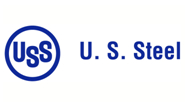Market Segment

January 11, 2022
USS Doubles Down on Arkansas, to Build New EAF Sheet Mill Next to BRS
Written by Tim Triplett
U.S. Steel will invest $3 billion in a new state-of-the-art minimill in Osceola, Ark., near its Big River Steel plant. This new minimill will combine two electric arc furnaces (EAFs) with 3 million tons per year of advanced steelmaking and finishing capabilities, highlighted by the first endless casting and rolling facility in the U.S. Construction is expected to commence in the first quarter of 2022, with production to begin in 2024.
![]() “With this location selected and shovels ready, we are reshaping the future of steelmaking,” U.S. Steel President and CEO David B. Burritt said. “We had numerous competitive site options, but Osceola offers our customers incomparable advantages.”
“With this location selected and shovels ready, we are reshaping the future of steelmaking,” U.S. Steel President and CEO David B. Burritt said. “We had numerous competitive site options, but Osceola offers our customers incomparable advantages.”
When completed, the sophisticated new steelmaking facility, in combination with Big River Steel, will form a mega mill with capacity of 6.3 million tons per year. It will be capable of providing many of the most advanced and sustainable steels in North America, the company said. BRS is currently constructing new non-grain-oriented electrical steel and Galvalume/galvanizing lines at its Osceola mill.
U.S. Steel said this investment will enable progress toward its goals of reducing GHG emissions by 20% by 2030 and to have net zero emissions by 2050. It also creates a platform for the company to expand its capability to produce the next generation of sustainable steel solutions made with significantly lower GHG emissions than the traditional integrated steelmaking process.
“Our nation and our customers need a robust and resilient supply chain to meet consumers’ needs, and that starts with U.S. Steel’s advanced, sustainable steels. Steel is critical to so much of what the world builds, so how we make our products contributes directly to a better, more sustainable world for all,” Burritt said.
Industry sources had speculated that Osceola had the best chance of landing the new mill.
And the announcement that the new mill will use “endless” casting technology appears to confirm prior rumors that the endless caster initially slated for U.S. Steel’s Mon Valley Works near Pittsburgh would be relocated to Arkansas in part over concerns about carbon emissions related to the integrated steelmaking process.
It is possible to operate the endless caster in tandem with EAFs. Italian steelmaker Arvedi, for example, operates a flat-rolled EAF mill that employs an “endless strip production” (ESP) technology “ideal” for installation in the minimills, according to equipment supplier Primetals Technologies. And Primetals said in 2019 that it had agreed to supply U.S. Steel with similar equipment for Mon Valley at what was intended to be the first ESP in the U.S. and the widest ESP ever built.
By Tim Triplett, Tim@SteelMarketUpdate.com







